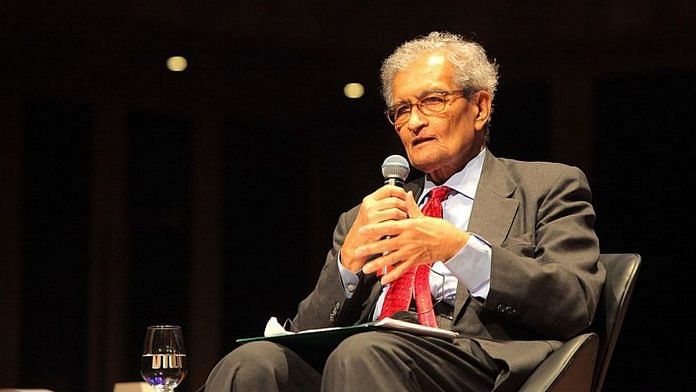The London School of Economics and Political Science, the alma mater of Babasaheb B.R. Ambedkar, has created a Chair in the honour of Nobel Laureate Amartya Sen. The Chair professor will serve as the director of the International Inequalities Institute, which was established in 2015 under the LSE’s Department of Sociology for studying rising worldwide inequalities, its various consequences and possible solutions. This institute hosts interdisciplinary research on rising inequalities and also offers MSc in Inequalities and Social Sciences. The LSE is currently seeking to recruit a person to head the Amartya Sen Chair.
Amartya Sen, who was a professor of economics at the LSE from 1971 to 1982, is only the second Indian to have a Chair dedicated to him by a university in the West. In 2004, Columbia University honoured Professor Jagdish Bhagwati with a Chair on Indian Political Economy in its School of International and Public Affairs. Professor Arvind Panagariya was the first person to be appointed as the professor of Jagadish Bhagawati Chair. Later on, Arvind Panagariya was appointed as vice-chairman of NITI Aayog. After resigning from the post, Panagariya went back to Columbia University to handle the Jagadish Bhagwati Chair.
Professor Amartya Sen is one of the main contributing forces behind the creation of the LSE’s International Inequalities Institute. He currently teaches Economics and Philosophy at the Harvard University. But his two books, On Economic Inequality (1973) and Inequality Reexamined (1992), are nowadays taught in universities across the world. In his books, Amartya Sen has explores methodological and theoretical underpinnings of inequalities and provides solutions through his ‘capability’ theory.
Importance of Amartya Sen and his Capability Theory
Amartya Sen was conferred with Nobel Prize in Economics (1998) for his Human Development Theory. The following year, the government bestowed on him India’s highest civilian award, Bharat Ratna. Professor Amartya Sen is also a guiding force behind the creation of United Nations Human Development Index.
Also read: Sen censorship is new sequel to conflict over CBFC’s politics
Amartya Sen’s theory of human development is based on his earlier works on capability theory, which has been at the centre of many debates since 1999. Sen’s capability theory is partly influenced by the thoughts of ancient Greek Philosopher Aristotle. According to Aristotle, human beings need to be provided such an environment where they can realise their functionality. Human beings can realise their function thorough capability building. In modern times, from this proposition, inference is drawn that the state (legislative, executive and judiciary) should work towards creation of such an environment where every person could become aware of his capability and should strive to develop it in its highest form.
Amartya Sen further redefined this in modern perspective and sought the inclusion of diversity (social and cultural) and differences (gender and age) under the wider framework of justice and human development. In this framework, one the one hand, providing basic facilities such as education, health, food, shelter and employment to the people become necessary for the creation of good society, while on the other hand, freedom of speech, expression and mind, toleration for food habits, religious beliefs and dissent also become sine qua non. In the absence of these, a citizen cannot know his/her highest capability and therefore, would not be able to achieve it. Amartya Sen’s these thoughts have made him one of the main targets of Hindutva forces, whom he considers an obstacle in the development of human capability.
Chair in inequality studies, its importance
One of the key factors behind the London School of Economics establishing the Amartya Sen Chair in Inequality Studies is to highlight the other research works of Professor Sen, which he had carried out before coming up with his capability theory. Sen has extensively worked on studying inequalities, but his capability theory seems to have overshadowed them. In addition to this, the LSE seems to be preserving memory of one of its most notable professors.
Also read: Economist Jean Dreze detained by Jharkhand police, released later
The LSE’s decision to create a Chair in the name of an Indian economist is an honour to Amartya Sen at personal level, but for Indians it is a matter of great pride as well as warning. It a matter of pride because books authored by an Indian intellectual are being used globally as a tool to understand one of the greatest threats of the 21st century, and it may also be a warning that India holds an important place globally in studying inequalities since it has been witnessing escalating inequalities, poverty and low human development index (HDI).
The author is currently doing his PhD on Rising Inequality and Its Implications on Political Behaviour of People in India at the Department of Politics and International Relations, Royal Holloway, University of London. Views are personal.
This article has been translated from Hindi. The original can be read here.



